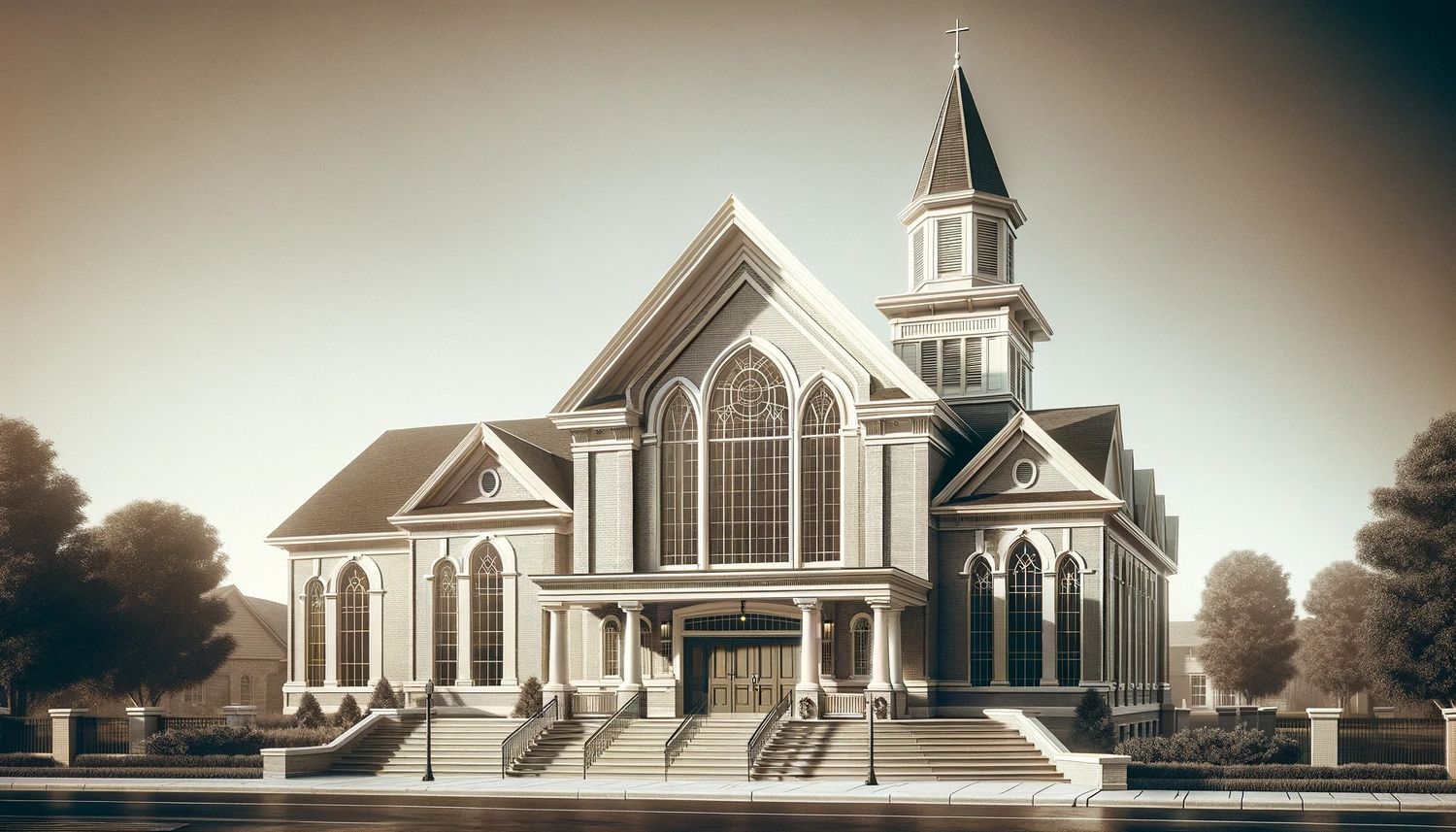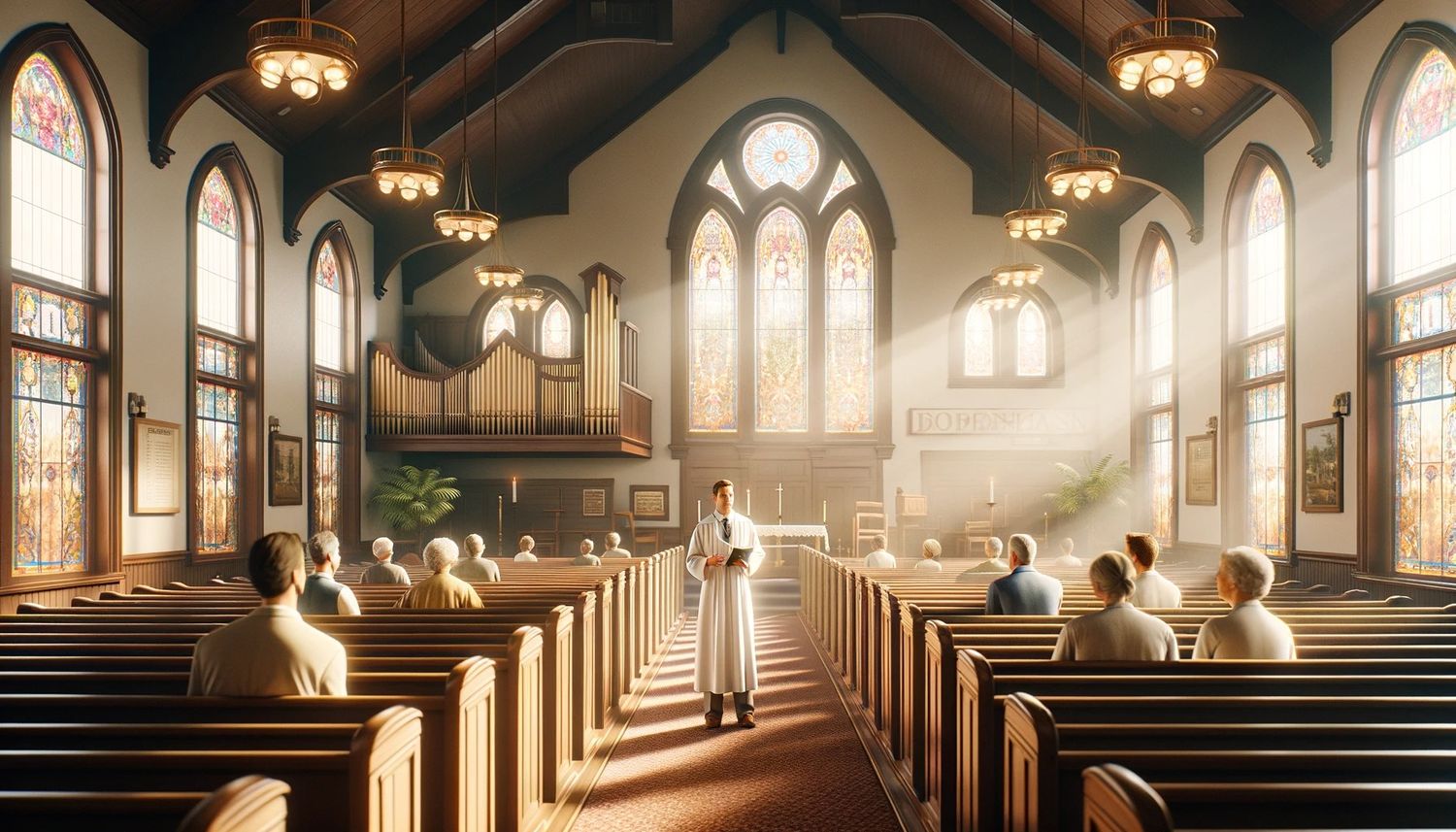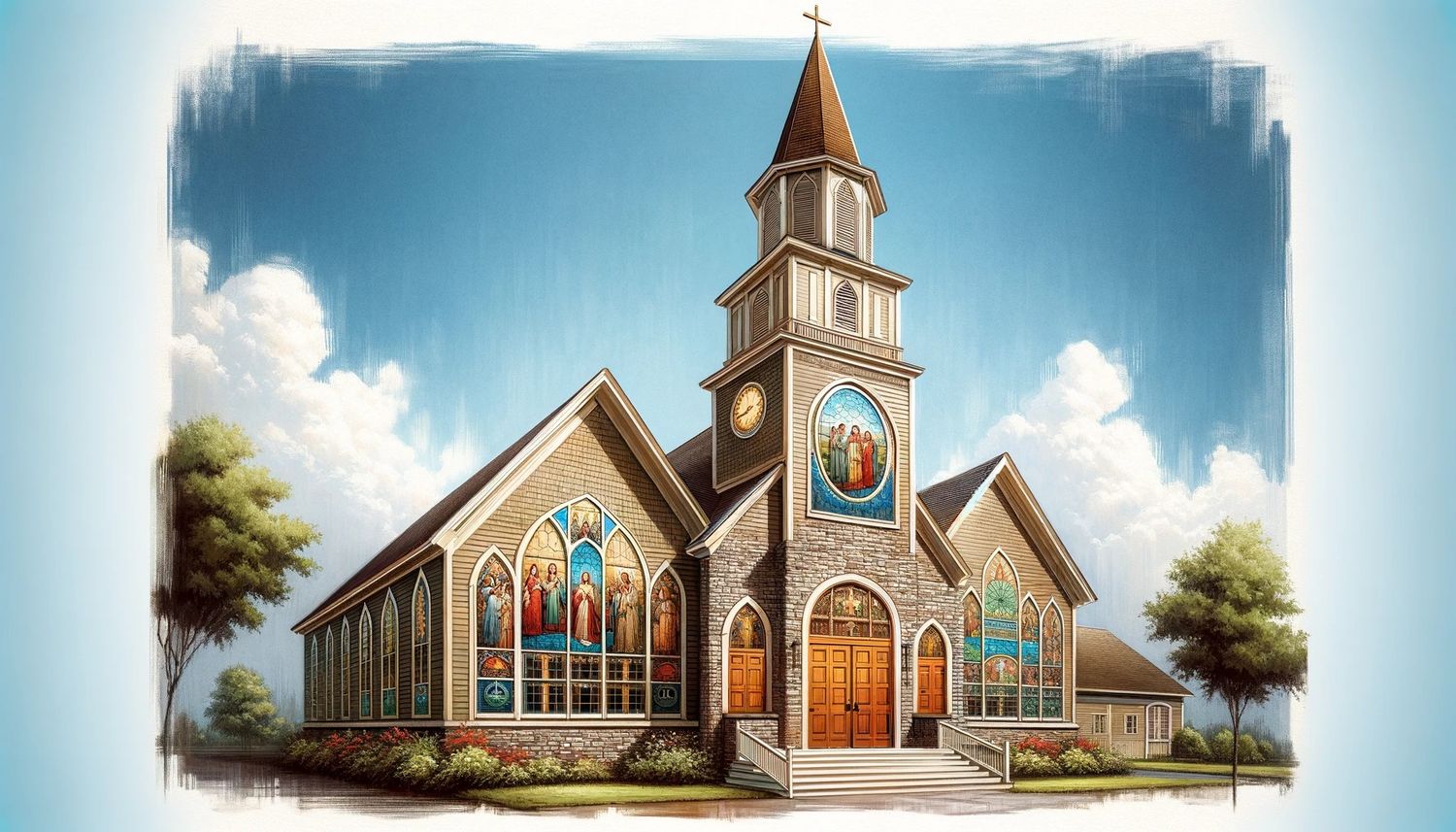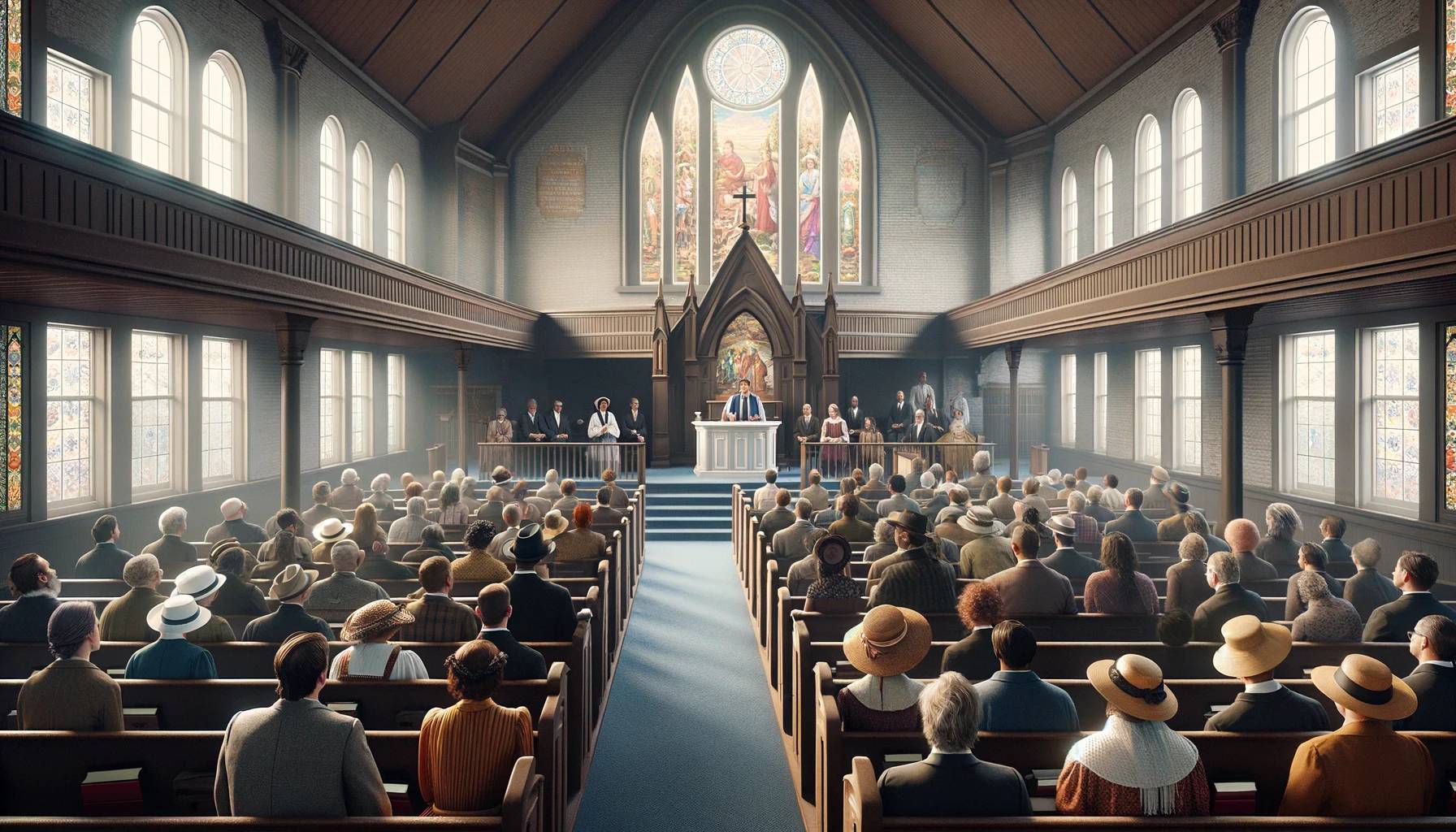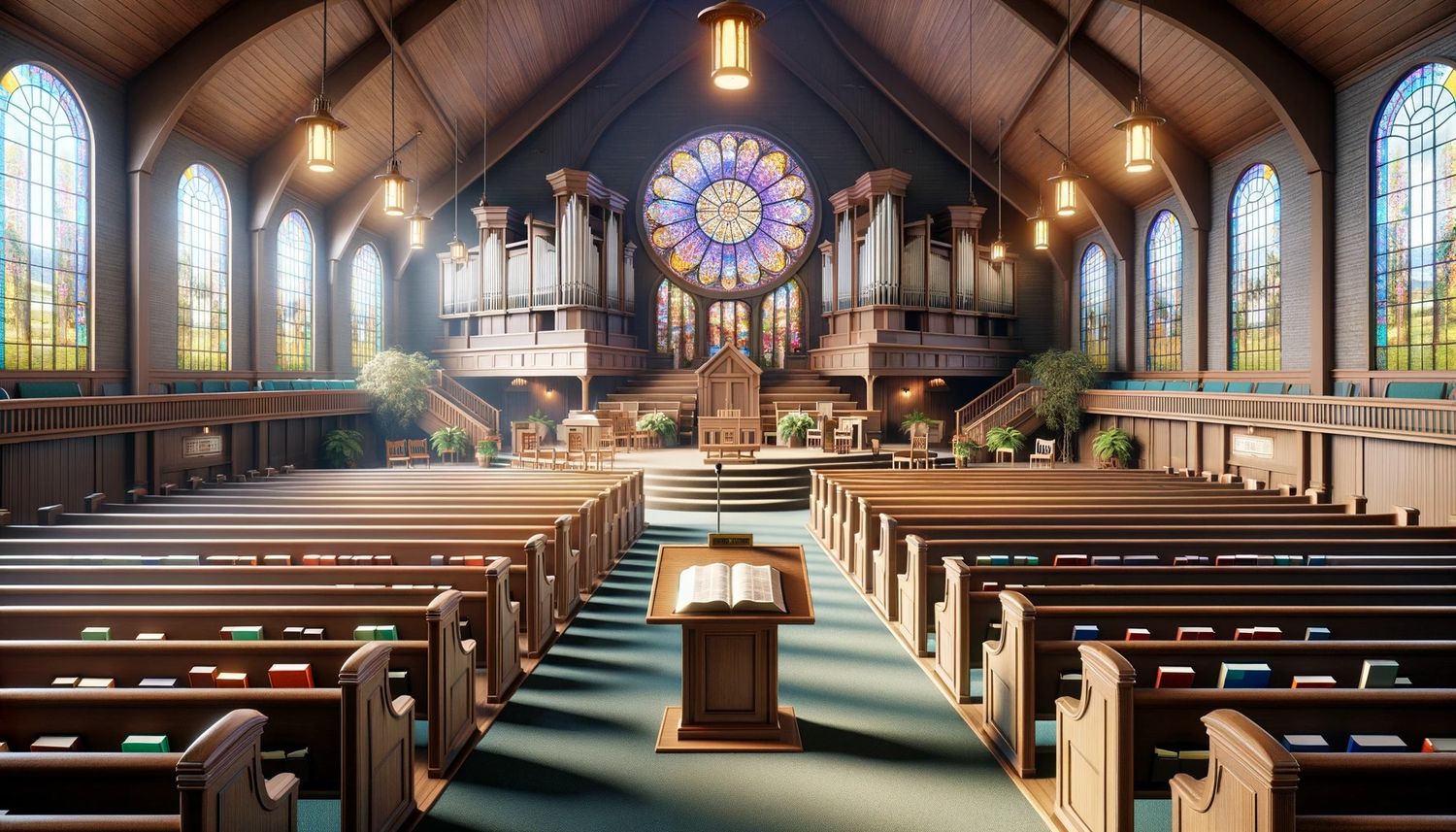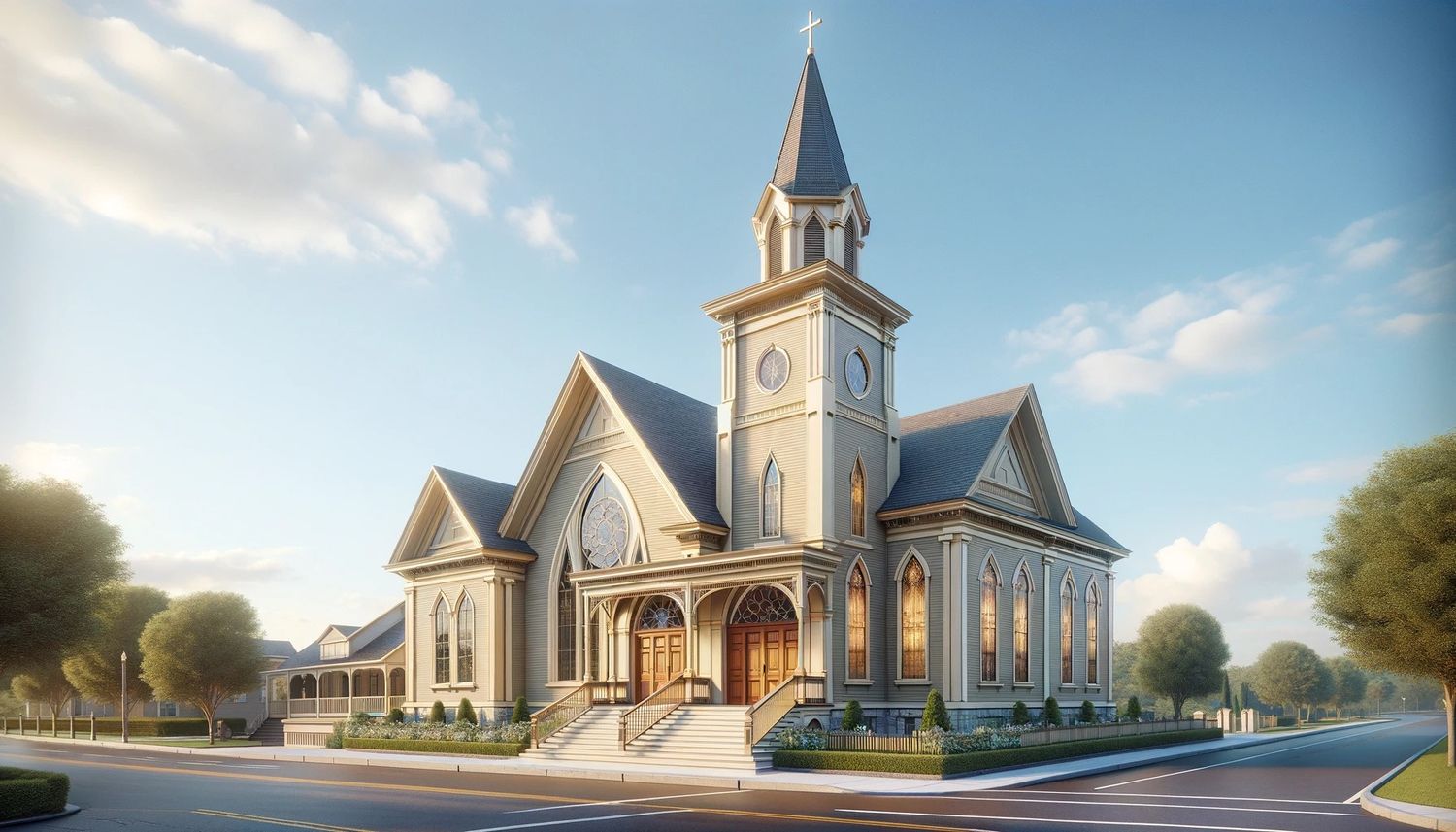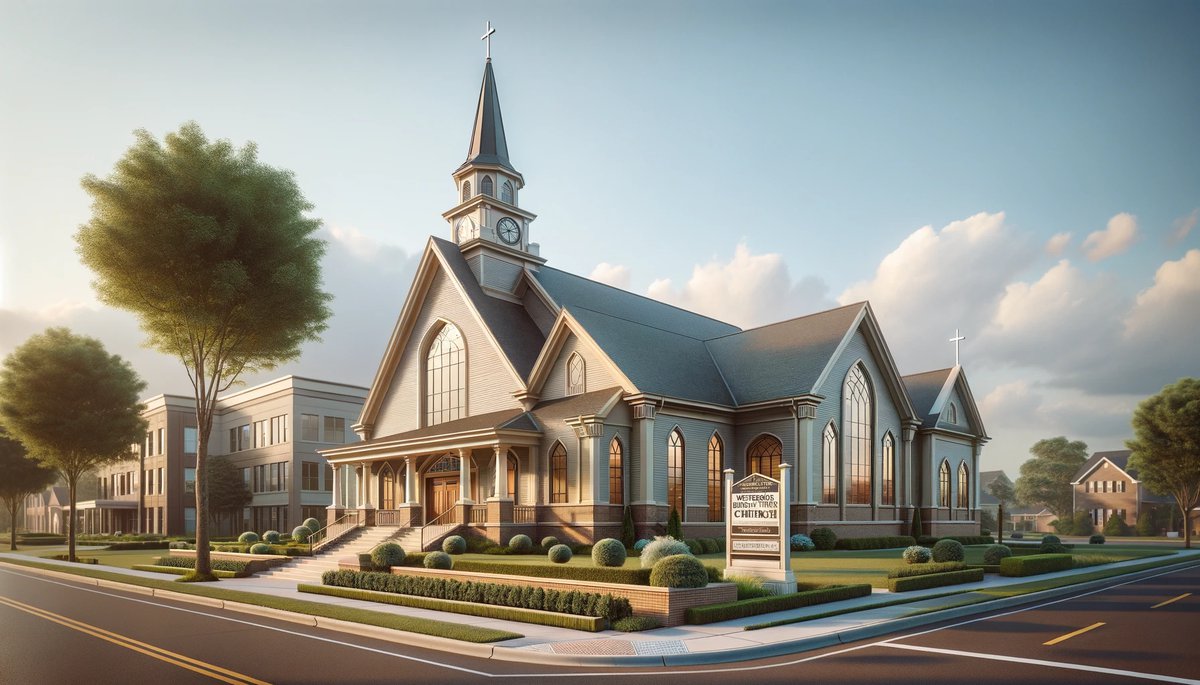Home>Theology and Spirituality>What Is Landover Baptist Church


Theology and Spirituality
What Is Landover Baptist Church
Published: February 23, 2024
Peter Smith, Editorial Director at Christian.net, combines deep insights into faith, politics, and culture to lead content creation that resonates widely. Awarded for his contributions to religious discourse, he previously headed a major organization for religious communicators, enhancing dialogue on faith's societal impacts.
Discover the theology and spirituality of Landover Baptist Church. Learn about their beliefs and practices in this insightful guide.
(Many of the links in this article redirect to a specific reviewed product. Your purchase of these products through affiliate links helps to generate commission for Christian.net, at no extra cost. Learn more)
Table of Contents
Introduction
Landover Baptist Church is a renowned institution that has garnered attention for its unique approach to religious practice and its satirical portrayal of fundamentalist Christianity. Founded in 1612, Landover Baptist Church has a rich history and has become a significant cultural phenomenon in the realm of online satire and religious commentary.
The church's website, which is a satirical parody of fundamentalist Christianity, has attracted a wide audience and sparked both amusement and controversy. Despite its satirical nature, the website has been mistaken for a genuine religious organization by many, leading to widespread debate and discussion.
The church's name itself, "Landover Baptist Church," is a clever play on words, as "Landover" is a fictional town, and the church's portrayal of extreme fundamentalism is a satirical commentary on certain aspects of conservative Christianity.
The website features a wealth of content, including articles, forums, and multimedia, all presented in a tongue-in-cheek manner. This unique approach has garnered a dedicated following and has sparked conversations about the intersection of religion, humor, and social commentary.
Landover Baptist Church's online presence has led to widespread speculation and debate about the intentions behind its content. Some view it as a form of social and religious critique, while others see it as a source of entertainment and satire. Regardless of one's interpretation, the church's impact on popular culture and its ability to provoke thoughtful discussions cannot be denied.
As we delve into the history, beliefs, controversies, and community involvement of Landover Baptist Church, it's important to approach the subject with an open mind and an understanding of the complex interplay between religion, satire, and societal norms.
Read more: What Are Baptist Churches
History of Landover Baptist Church
The history of Landover Baptist Church is a fascinating tapestry of satire, social commentary, and religious parody. Founded in 1612, the church has a rich and storied past that has left an indelible mark on the landscape of online religious satire.
The origins of Landover Baptist Church can be traced back to a small group of individuals who sought to provide a satirical take on fundamentalist Christianity. Over the centuries, the church has evolved into a prominent online presence, attracting a diverse audience and sparking widespread discussion.
The church's website serves as a platform for its unique brand of satire, featuring a wealth of content that humorously critiques certain aspects of conservative Christianity. Through articles, forums, and multimedia, Landover Baptist Church has cultivated a dedicated following and has become a focal point for conversations about the intersection of religion, humor, and social critique.
Despite its satirical nature, the church's website has often been mistaken for a genuine religious organization, leading to widespread debate and speculation about its intentions. This blurring of lines between satire and reality has contributed to the church's enduring impact on popular culture and its ability to provoke thoughtful discussions about the role of humor in religious discourse.
As the church's history continues to unfold, it remains a compelling example of how satire can serve as a vehicle for social and religious commentary. Its ability to engage audiences and stimulate dialogue underscores the enduring relevance of Landover Baptist Church in the realm of online satire and religious discourse.
Beliefs and Practices
Landover Baptist Church espouses a satirical portrayal of fundamentalist Christian beliefs and practices, using humor and parody to critique certain aspects of conservative Christianity. Through its website, the church presents a tongue-in-cheek interpretation of various religious tenets and rituals, often exaggerating them to absurd lengths for comedic effect.
The church's satirical portrayal of beliefs encompasses a wide range of topics, including traditional Christian doctrines, moral values, and social attitudes. It uses exaggerated and outlandish interpretations to highlight and critique what it perceives as the more extreme or rigid aspects of fundamentalist Christianity.
In its satirical depiction of Christian practices, Landover Baptist Church humorously exaggerates rituals, customs, and behavioral expectations commonly associated with conservative Christianity. This approach serves as a form of social commentary, prompting reflection on the potential consequences of dogmatic adherence to religious traditions and beliefs.
Through its unique brand of satire, the church challenges its audience to consider the implications of fundamentalist interpretations of Christian beliefs and practices. By presenting these concepts in an exaggerated and often absurd manner, Landover Baptist Church invites reflection on the broader societal impact of rigid religious ideologies.
The church's satirical portrayal of beliefs and practices is a testament to the power of humor as a tool for social and religious critique. It prompts audiences to engage in thoughtful reflection on the intersection of faith, tradition, and societal norms, while also serving as a source of entertainment and amusement for many.
Landover Baptist Church's approach to beliefs and practices underscores the complex interplay between religion, satire, and social commentary. Its unique brand of humor challenges audiences to consider the implications of extreme religious interpretations, while also providing a platform for lighthearted engagement with religious themes.
In summary, the church's satirical portrayal of beliefs and practices serves as a thought-provoking commentary on the potential consequences of rigid religious ideologies, while also offering a source of entertainment and amusement for those who appreciate its unique brand of humor.
Leadership and Structure
Landover Baptist Church, despite its satirical nature, presents a whimsical yet thought-provoking depiction of leadership and organizational structure within a fictional fundamentalist Christian setting. The church's portrayal of leadership and structure is characterized by exaggerated caricatures and humorous interpretations, offering a satirical commentary on the dynamics of religious authority and hierarchy.
Within the satirical framework of Landover Baptist Church, the leadership is depicted as a blend of authoritarianism and absurdity, often lampooning traditional hierarchies found in religious institutions. The church's fictional leaders are portrayed as comically overbearing and dogmatic figures, wielding exaggerated power and influence over their congregants. This portrayal serves as a satirical critique of the potential pitfalls of unchecked authority within religious organizations.
The organizational structure of Landover Baptist Church is presented in a manner that humorously amplifies the bureaucratic and hierarchical elements commonly associated with religious institutions. Through its satirical lens, the church highlights the absurdities of organizational rigidity and the potential for institutional dysfunction within religious hierarchies. This portrayal invites reflection on the broader implications of organizational dynamics and power structures within religious contexts.
Despite its satirical nature, Landover Baptist Church's depiction of leadership and structure prompts audiences to consider the complexities of authority and organizational dynamics within religious institutions. By presenting these concepts in an exaggerated and humorous light, the church encourages reflection on the potential consequences of unchecked authority and rigid organizational structures.
In summary, Landover Baptist Church's satirical portrayal of leadership and structure offers a lighthearted yet insightful commentary on the dynamics of religious authority and organizational hierarchies. Through its whimsical depiction, the church prompts audiences to engage in thoughtful reflection on the complexities of leadership and structure within religious contexts, all while providing a source of entertainment and amusement through its unique brand of satire.
Controversies and Criticisms
Landover Baptist Church, with its satirical portrayal of fundamentalist Christianity, has not been without its fair share of controversies and criticisms. The church's website, designed as a parody of conservative Christian beliefs and practices, has often sparked heated debates and raised questions about the boundaries of satire and religious commentary.
One of the primary controversies surrounding Landover Baptist Church revolves around the blurred lines between its satirical content and genuine religious expression. The church's website, with its meticulously crafted satire, has at times been mistaken for an authentic fundamentalist Christian organization. This confusion has led to misunderstandings and heated discussions, with some individuals interpreting the content as offensive or disrespectful to genuine religious beliefs.
Additionally, the church's satirical portrayal of fundamentalist Christianity has drawn criticism from certain segments of the religious community. Some have voiced concerns about the potential for misunderstanding and the perpetuation of stereotypes about conservative Christian beliefs. This criticism underscores the delicate balance between satire and respectful discourse, particularly in the realm of religious commentary.
Furthermore, Landover Baptist Church has faced scrutiny for its approach to sensitive religious topics. The church's use of humor and exaggeration to critique certain aspects of conservative Christianity has been a point of contention for those who view such topics as deeply personal and sacred. This has led to debates about the boundaries of comedic expression and the potential impact of satire on religious sensitivities.
Despite these controversies and criticisms, it is important to recognize the nuanced nature of Landover Baptist Church's satirical content. While it has sparked debate and raised important questions about the intersection of humor and religious commentary, the church's approach serves as a thought-provoking commentary on the complexities of faith, tradition, and societal norms.
In navigating the controversies and criticisms surrounding Landover Baptist Church, it is crucial to engage in open dialogue and thoughtful reflection. By acknowledging the multifaceted nature of satire and its impact on religious discourse, we can foster meaningful conversations about the boundaries of comedic expression and the respectful portrayal of religious beliefs and practices.
Read more: What Is A Southern Baptist Church
Outreach and Community Involvement
Landover Baptist Church, despite its satirical nature, has demonstrated a unique form of outreach and community involvement through its online platform. While the church's content is presented in a satirical and humorous manner, it has effectively engaged with a diverse audience and sparked meaningful conversations about the intersection of religion, humor, and social commentary.
Through its website, Landover Baptist Church has fostered a sense of community among its followers, providing a space for lighthearted engagement with religious themes and social critique. The church's forums and interactive features have facilitated discussions and interactions among individuals with varying perspectives on faith and satire, creating a virtual community that transcends geographical boundaries.
Furthermore, the church's outreach efforts extend to its use of satire as a tool for social and religious commentary. By presenting exaggerated and outlandish interpretations of fundamentalist Christian beliefs and practices, Landover Baptist Church prompts audiences to reflect on the broader societal implications of rigid religious ideologies. This thought-provoking approach serves as a form of outreach, encouraging individuals to critically examine the complexities of faith, tradition, and societal norms.
In addition, the church's humorous portrayal of conservative Christianity has sparked conversations about the role of humor in religious discourse, inviting individuals to consider the potential impact of satire on their own beliefs and perspectives. This engagement with audiences from diverse backgrounds reflects the church's commitment to fostering dialogue and reflection within a virtual community that transcends traditional boundaries.
Moreover, Landover Baptist Church's outreach and community involvement are evident in its ability to capture the attention of a wide audience, including individuals who may not align with its satirical portrayal of fundamentalist Christianity. This broad reach has facilitated conversations about the boundaries of comedic expression, the respectful portrayal of religious beliefs, and the complexities of social and religious satire.
In summary, Landover Baptist Church's unique form of outreach and community involvement, despite its satirical nature, has fostered meaningful interactions, sparked thoughtful conversations, and prompted reflection on the complexities of faith, tradition, and societal norms. Through its online platform, the church has created a virtual community that engages with diverse audiences, transcending geographical boundaries and prompting individuals to consider the broader implications of humor and social critique in religious discourse.
Conclusion
In conclusion, Landover Baptist Church stands as a testament to the power of satire as a vehicle for social and religious commentary. Despite its satirical portrayal of fundamentalist Christianity, the church has sparked meaningful conversations about the complexities of faith, tradition, and societal norms. Through its website, Landover Baptist Church has cultivated a virtual community that engages with diverse audiences, transcending geographical boundaries and prompting individuals to consider the broader implications of humor and social critique in religious discourse.
The church's rich history, spanning centuries of satirical commentary, reflects its enduring impact on popular culture and its ability to provoke thoughtful discussions about the role of humor in religious discourse. While the church's content has at times sparked controversies and criticisms, it has also served as a catalyst for dialogue and reflection on the boundaries of comedic expression and the respectful portrayal of religious beliefs and practices.
Landover Baptist Church's unique approach to beliefs and practices, leadership and structure, controversies and criticisms, and outreach and community involvement underscores the multifaceted nature of satire as a tool for social and religious critique. By presenting exaggerated and outlandish interpretations of fundamentalist Christian beliefs and practices, the church challenges its audience to consider the potential consequences of rigid religious ideologies while also providing a source of entertainment and amusement for many.
As we navigate the complexities of satire and its impact on religious discourse, it is crucial to approach the subject with an open mind and an understanding of the nuanced interplay between humor, faith, and societal norms. Landover Baptist Church serves as a thought-provoking example of how satire can prompt reflection on the complexities of religious belief and practice, fostering meaningful conversations and engaging with diverse audiences in a virtual community that transcends traditional boundaries.
In essence, Landover Baptist Church's satirical portrayal of fundamentalist Christianity has left an indelible mark on the landscape of online satire and religious commentary, prompting individuals to consider the broader implications of humor and social critique in the context of faith and tradition. As the church's history continues to unfold, it remains a compelling example of the enduring relevance of satire as a catalyst for dialogue, reflection, and engagement within the realm of religious discourse.

